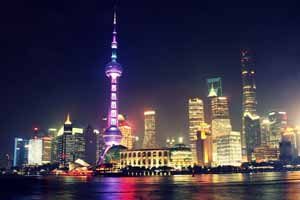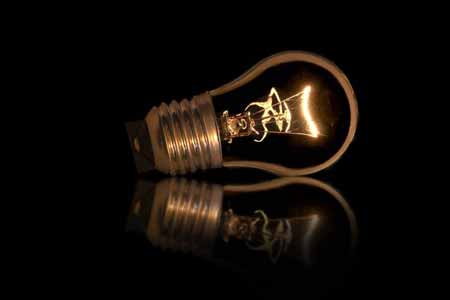The IP5 offices (represented by the U.S. Japan, Korea, China, and the EU) are subject to thousands of patent applications a year. Backlogs in patent processing are prevalent both inside and out of the IP5. The need for patent offices to speed up processing have led to China and Brazil agreeing on a Patent Prosecution Highway pilot program. It is expected to facilitate more patent applications, and increase patent translation…
On The Highway To Faster Patent Processing

On November 13, 2017, an agreement on a joint, Patent Prosecution Highway (PPH) was made between the Commissioner of the State Intellectual Property Office of China (SIPO) and the President of the Brazilian National Institution of Intellectual Property (INPI).
As a result of this agreement, SIPO and INPI are planning to launch a new PPH pilot program beginning on February 1, 2018. The hope is applicants from each country will have their patent application process expedited in each other’s respective patent office.
How Will The Brazil-China Patent Prosecution Highway Help?
The aim of the Patent Prosecution highway is to speed up processing times for patent applications in both China and Brazil, and to lower costs. This would be an incentive for inventors to file, and help further develop their respective country’s economy.
This is not the first time the two countries have pursued a more simplified patent processing system – with a PPH pilot program also pursued in 2014. However, both countries still face backlogs in their patent processing systems, which the PPH would help alleviate.

Brazil is no stranger to patent processing backlogs either.
At present, it takes 10 or more years for the examination process to begin after filing an application. This huge backlog negatively affects both inventors’ motivation to file, and Brazil’s economic and technological developments.
With Brazil rising as a global player, and it’s important trade relationship with China, facilitating simplified patent processing serves to benefit both countries’ economic development.
The new agreement is expected to help reduce duplication efforts between SIPO and INPI. The expectation is that the success of the Brazilian-Chinese PPH will serve as a model of IP cooperation between BRIC nations.
Currently, the PPH is limited in Brazil to only patents relating to Packing, IT, and Mensuration and Chemistry.
Brazil has also established a PPH program with the United States beginning in 2016, and Japan beginning in early 2017. The country will soon begin a pilot program with EPO alongside that with China in 2018.
The Expected Impact on Patent Translation
The new agreement for the Patent Prosecution Highway will help both China and Brazil in a number of ways:
- By creating a better IP environment
- By improving timelines for the application process
- By decreasing duplication efforts across both offices
With reduced timelines and stronger intellectual property rights serving as incentives for applicants to apply to each other’s patent offices, patent application rates are projected to grow for both Brazil and China.

To ensure linguistic success in light of the PPH, patent translators will have to meet higher demands and expectations.
Legal translation , and more specifically patent translation services, are generally more technical than other types of document translations. This is due to the technical content used in patent applications.
As such, a translator will need to have experience in patent law, and be familiar with filing requirements for Brazil/China.
Moreover, the Chinese <-> Portuguese language pair is less commonly requested for patent translations. This means that the pool of qualified translators with a background in patent law will be limited, and in high demand.
The same expectations will apply to translators working in the language pairs relating to the 3 other PPH programs Brazil has recently set up with the U.S., EPO, and Japan.
Learn More About Our Patent Translation Services and our Legal Translation.
Sources
- http://english.sipo.gov.cn/specialtopic/pph/pphfiles/201604/P020160425497272906604.pdf
- http://english.sipo.gov.cn/specialtopic/pph/pphfiles/201604/P020160425497271026170.pdf
- http://english.sipo.gov.cn/news/official/201711/t20171115_1320154.html
- http://whoswholegal.com/news/features/article/33155/brazil-patent-updates
- https://www.epo.org/news-issues/news/2017/20171005.html
- http://www.ippropatents.com/ippropatentsnews/article.php?article_id=5622
- http://www.meti.go.jp/english/press/2017/0317_001.html
About Language Connections:
Language Connections is one of the top language service companies in the US. Over the last 30 years, we’ve focused on providing the best business translation services, interpreting services, as well as interpreter training and customized language training programs. In addition to top-tier corporate language training, we offer certified corporate interpreters and professional business translation services in 200+ languages. Our network includes linguists with backgrounds in all major industries. They’re ready to meet your needs, whether they’re for technical translation services, legal translation, government translation services, international development translation services, education translation services, life sciences translation, or something else. Reach out to us today for a free quote on our cost-efficient and timely translation services, interpreters, or other linguistic services.
Language Connections Inc.
2001 Beacon Street, Suite 105,
Boston, MA 02135
Phone: +1-617-731-3510
Email: service@languageconnections.com


